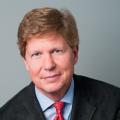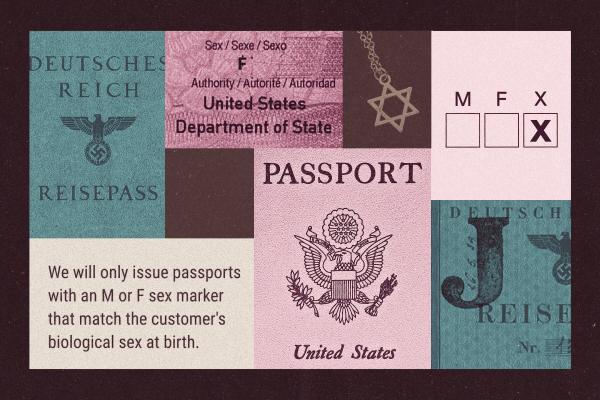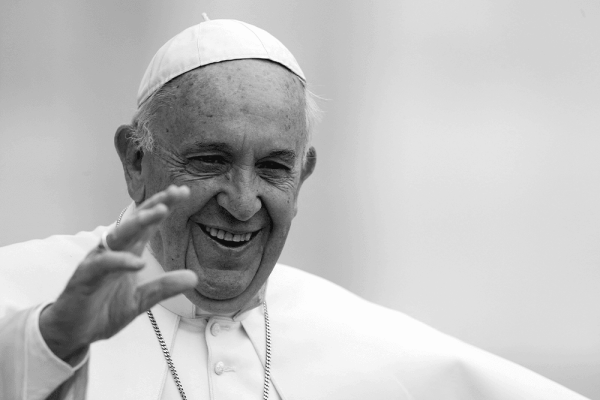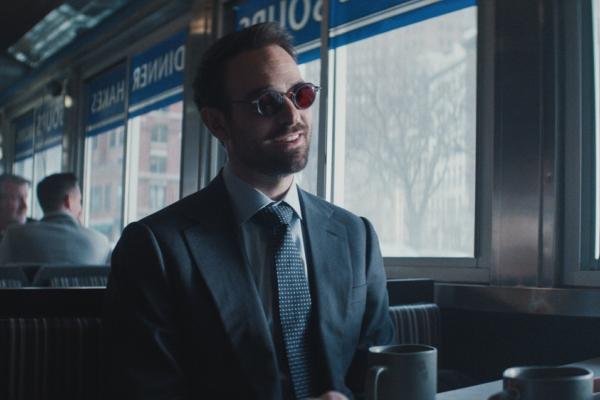The month of July 1925 in eastern Tennessee was hot, and nowhere more so than in the second story of the Rhea County courthouse in Dayton. John Thomas Scopes was on trial for teaching evolution in violation of Tennessee’s Butler Act. Scopes, a football coach and part-time science teacher, had been recruited by local boosters to test the constitutionality of the law, and even though he couldn’t remember whether or not he had actually taught evolution, he agreed to stand trial.
The trial pitted two of the nation’s most famous lawyers against one another. Clarence Darrow headed Scopes’s defense team, and William Jennings Bryan, the three-time Democratic nominee for president and Woodrow Wilson’s secretary of state, assisted the prosecution. Journalists flocked to Dayton — as the civic boosters had hoped— to cover the trial; Chicago’s WGN radio carried the proceedings live.
A circus atmosphere surrounded the trial with banners, protesters, and monkeys on the courthouse lawn. The trial was cast as a contest between science and faith, as a referendum on the veracity of the Bible, especially the Genesis accounts of creation. The irascible and acerbic H. L. Mencken of the Baltimore Sun, no friend of Bryan or his cause, headed the phalanx of journalists. As the trial steamrolled toward its preordained conclusion that Scopes was guilty, Mencken wrote: “It serves notice on the country that Neanderthal man is organizing in these forlorn backwaters of the land, led by a fanatic, rid of sense and devoid of conscience.” Tennessee, he added, “now sees its courts converted into camp meetings and its Bill of Rights made a mock of by its sworn officers of the law.”
For their part, America’s evangelicals had long felt themselves under siege. The publication of Charles Darwin’s Origin of Species in 1859 cast doubt on the literal interpretation of Genesis. The discipline of higher criticism, emanating from Germany, questioned the authorship of several books of the Bible. For example, how is it, the higher critics asked, that Moses, the putative author of the Pentateuch (the first five books of the Hebrew Bible), records his own death at the end of the book of Deuteronomy?
In addition, the 1920s was the era of jazz and speakeasies and the flapper, women with bobbed hair and short skirts. For many American evangelicals, it seemed as though the larger American culture had turned against them and their values. The Scopes “Monkey” Trial, as it came to be known, represented the culmination of evangelical uneasiness with the broader society.
Scopes was found guilty of violating the Butler act and fined $100 (Bryan offered to pay the fine, and the verdict was later overturned on a technicality). But American evangelicals lost decisively in the larger courtroom of public opinion. They were ridiculed, by Mencken and others, as backwoods country bumpkins.
Symbolically, the Scopes Trial was a turning point. In the course of the 1920s and 1930s, American evangelicals doubled down on their rejection of the larger culture. Having already embraced premillennialism, the doctrine that Jesus would return to earth at any moment to rain judgment on the unrighteous, evangelicals set about to construct the evangelical subculture, this vast and interlocking network of congregations, denominations, Bible camps, Bible institutes, colleges, seminaries, missionary societies, and publishing houses. The broader culture was both corrupt and corrupting, they argued, and the subculture provided a safe space, a refuge from the dangers of an increasingly secular society.
In the middle decades of the 20th century, evangelicals especially sought to shield their children from the depredations of that larger world. The subculture served that purpose. It was insular and enveloping, and it was possible — as I can attest personally — to grow up in the evangelical subculture and have very little commerce with anyone outside of that world. Parents could send their children to Sunday school and Bible camp and then to Moody Bible Institute or Multnomah School of the Bible or Westmont College reasonably confident that they would not be corrupted by the outside world.
What were the political ramifications of this retreat into the evangelical subculture? In the short term, during the middle decades of the 20th century, evangelicals were largely apolitical; they did not participate in politics, certainly not in any organized way. Yes, there were a few evangelicals who made their voices heard – Fighting Bob Shuler, Billy James Hargis, Carl McIntire – but they were outliers. Many evangelicals during this time, drawing on their premillennial beliefs and their convictions about the corruptions of American society, refused to register to vote. Politics was the realm of Satan, they reasoned, and besides, this transitory world was condemned and careening toward judgment. Why bother?
But the construction of the evangelical subculture had another, longer term effect. The time, energy and money evangelicals invested in their own institutions in the 1920s and 1930s, often starting from scratch, began to reap dividends several decades later. Were it not for the subculture that evangelicals built so assiduously in the middle decades of the 20th century, the organized entry of evangelicals into the realm of politics would likely have foundered. Those institutions became the platform evangelicals needed to make their voices heard in the late 1970s and beyond.
Next time: The Chicago Declaration and Jimmy Carter. View the full series here.
Got something to say about what you're reading? We value your feedback!







